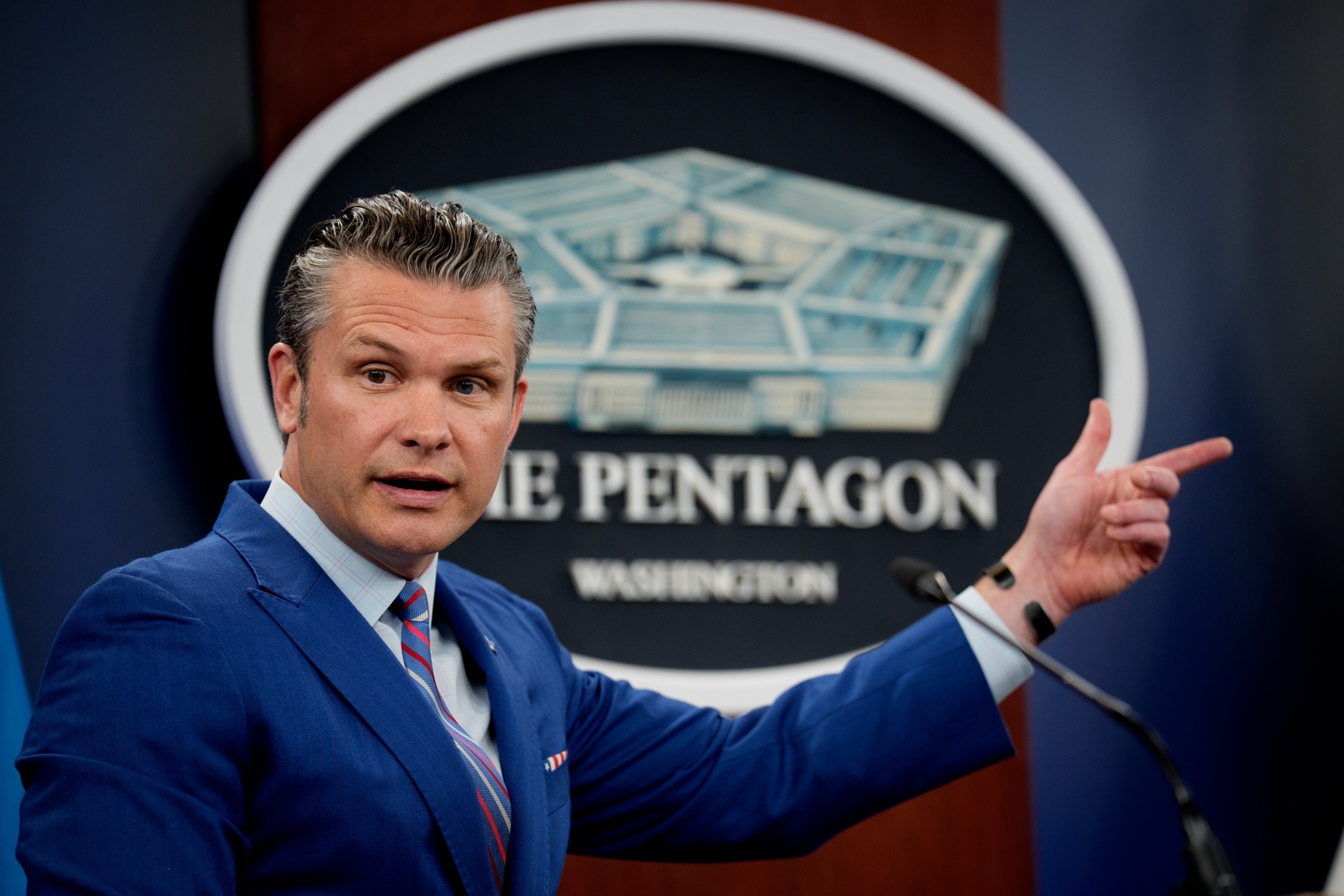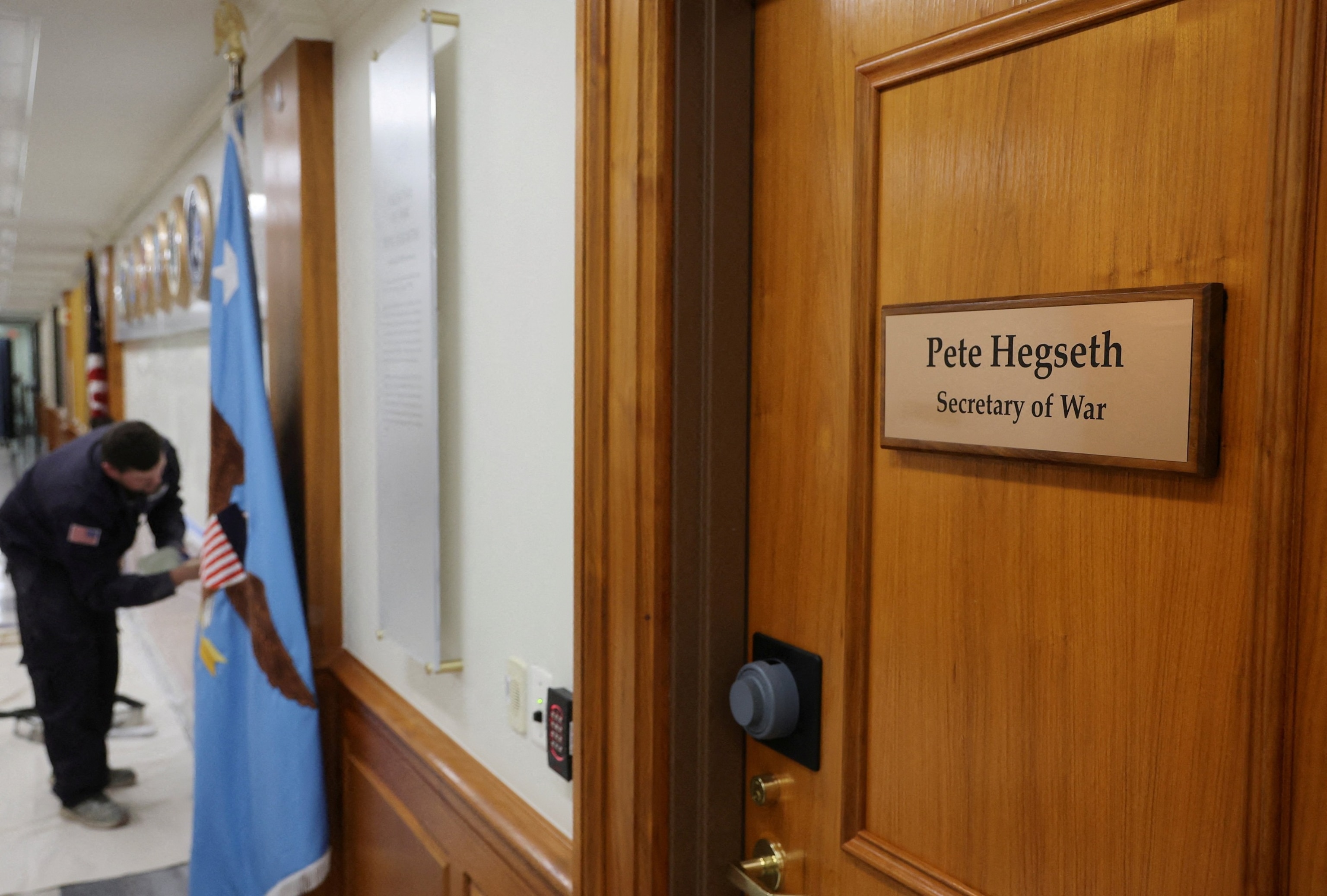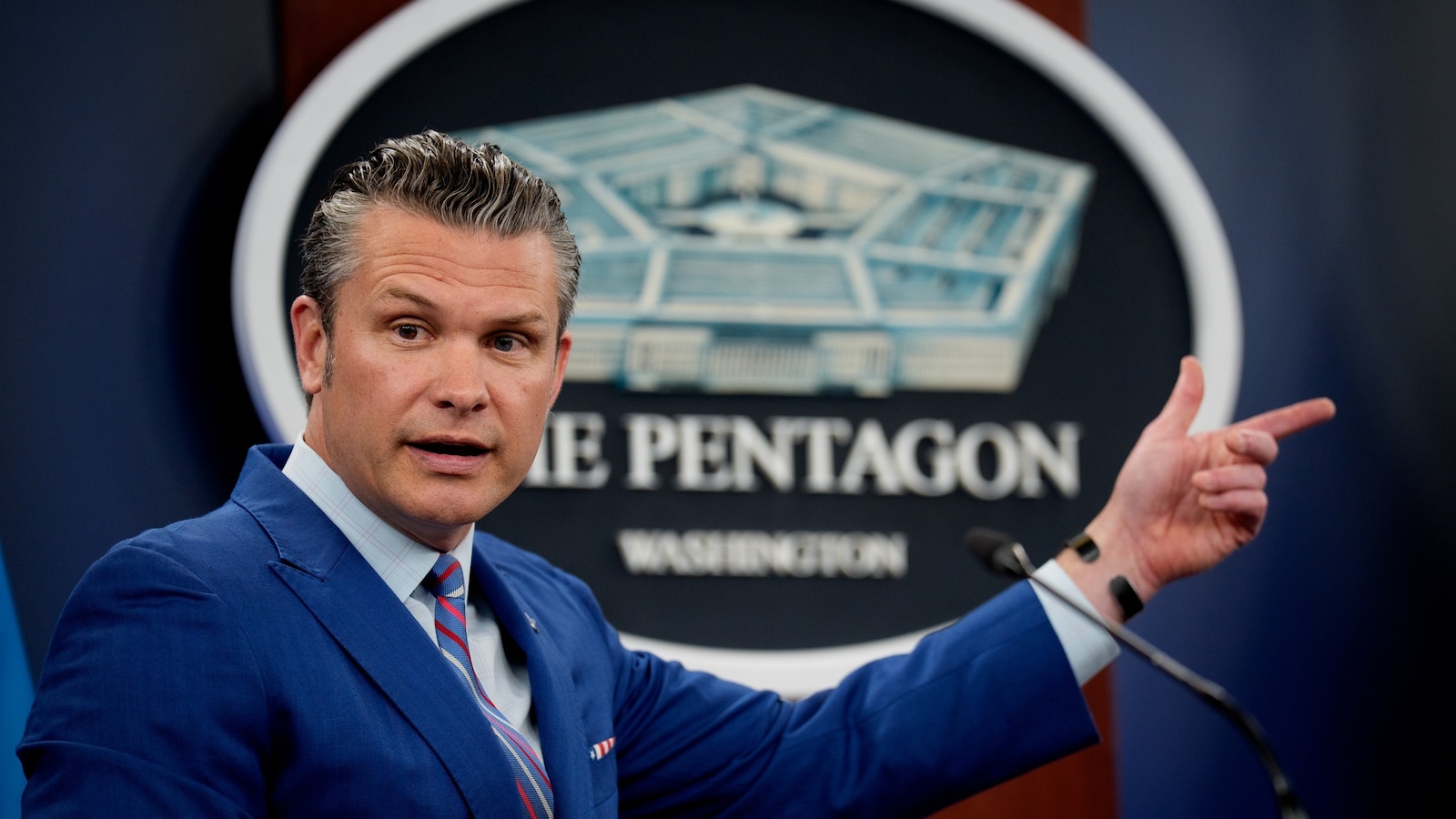Hegseth unveils new restrictions on Pentagon press access
Defense Secretary Pete Hegseth on Friday unveiled unprecedented new restrictions on building access for Pentagon reporters that prompted worries among media outlets that the policy would be used to crack down on independent reporting and limit the flow of information on military operations.
The sweeping new rules to access the building prohibit “unprofessional conduct that might serve to disrupt Pentagon operations,” as well as “attempts to improperly obtain” classified or unclassified information deemed “controlled,” according to a memo released to reporters.
Reporters who decline to agree to the terms or are found violating the rules would lose access to the building, the memo states.

U.S. Defense Secretary Pete Hegseth speaks during a news conference at the Pentagon on June 26, 2025 in Arlington, Virginia. Top officials from the Department of Defense gave an update after three Iranian nuclear facilities were struck by the U.S. military last weekend and Iran countered by launching missiles at Al Udeid Air Base in Doha, Qatar.
Andrew Harnik/Getty Images
“The ‘press’ does not run the Pentagon – the people do,” Hegseth wrote in a post on X. “The press is no longer allowed to roam the halls of a secure facility. Wear a badge and follow the rules — or go home.”
Built in the 1940s in Arlington, Virginia, the Pentagon is now one of the largest office buildings in the world with tens of thousands of uniformed and civilian personnel who work there. Visitor groups are frequently given tours. Reporters have long been given designated work spaces, which enables real-time reporting on military operations, including during wartime.
The new rules take effect next week, impacting reporters in waves depending upon when their current badges expire. If reporters reject the rules, it appears to be the first time in history that major national news outlets would lose their 24-7 access to unclassified spaces in the Pentagon.
Reporters would still be allowed to visit the building so long as they were accompanied by an escort and stated a reason for their visit.
“This entire effort is extremely troubling because it’s being done in an era of unprecedented public hostility from the secretary of defense to the news media,” said Barbara Starr, a former Pentagon correspondent for CNN who is now a senior fellow at the University of Southern California Annenberg Center for Communication, Leadership and Policy.
Starr, who began covering the Defense Department during Operation Desert Storm, said it wasn’t clear from the policy exactly what criteria would be used by Hegseth’s office to pull someone’s pass.
“Everyone understands possession of classified information poses legal jeopardy,” Starr said. “But it’s the responsibility of the officials who journalists speak to, to say, ‘I can’t talk about that. It’s classified.'”

A plaque that reads “Pete Hegseth – Secretary of War” hangs as a worker prepares a wall for new signs after U.S. President Donald Trump ordered the Department of Defense to be renamed as the “Department of War,” at the Pentagon in Washington, D.C., U.S., September 5, 2025.
Jonathan Ernst/via Reuters
Chief Pentagon spokesman Sean Parnell said “the guidelines in the memo provided to credentialed resident media at the Pentagon reaffirms the standards that are already in line with every other military base in the country. These are basic, common-sense guidelines to protect sensitive information as well as the protection of national security and the safety of all who work at the Pentagon.”
The Pentagon Press Association said it was aware of the new directive regarding badge access and was reviewing it.
Existing rules say reporters can be subject to searches leaving the building — a longtime stipulation for anyone accessing the Pentagon to prevent the misuse of classified information.
Earlier this year, Hegseth insisted that reporters shouldn’t be allowed to walk through certain hallways without an escort, even if the spaces themselves are unclassified. Under the new requirements, reporters would still be prevented from walking to most areas outside the food court and would have to swap out their badges with bright red or orange passes.
According to the new rules, the head of the Pentagon police “shall deny, revoke, or refuse to renew the PFAC of any person reasonably determined to pose a security or safety risk to DoW (Department of War) personnel or property.”
That standard would include such acts as treason and terrorism. But it also would include “unprofessional conduct that might serve to disrupt Pentagon operations,” the new policy stated.
“Additionally, actions other than conviction may be deemed to pose a security or safety risk, such as attempts to improperly obtain CNSI [classified national security information] or CUI [confidential unclassified information], or being found in physical possession of CNSI or CUI without reporting,” according to the memo.


